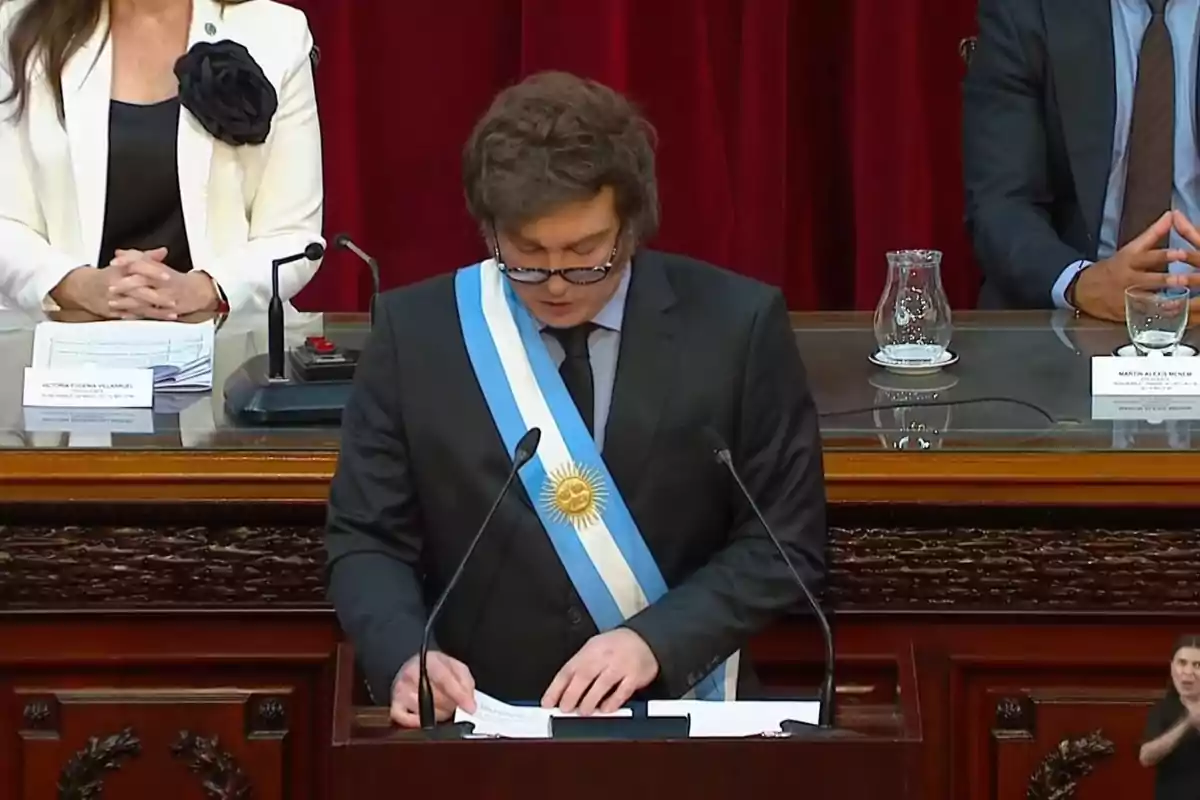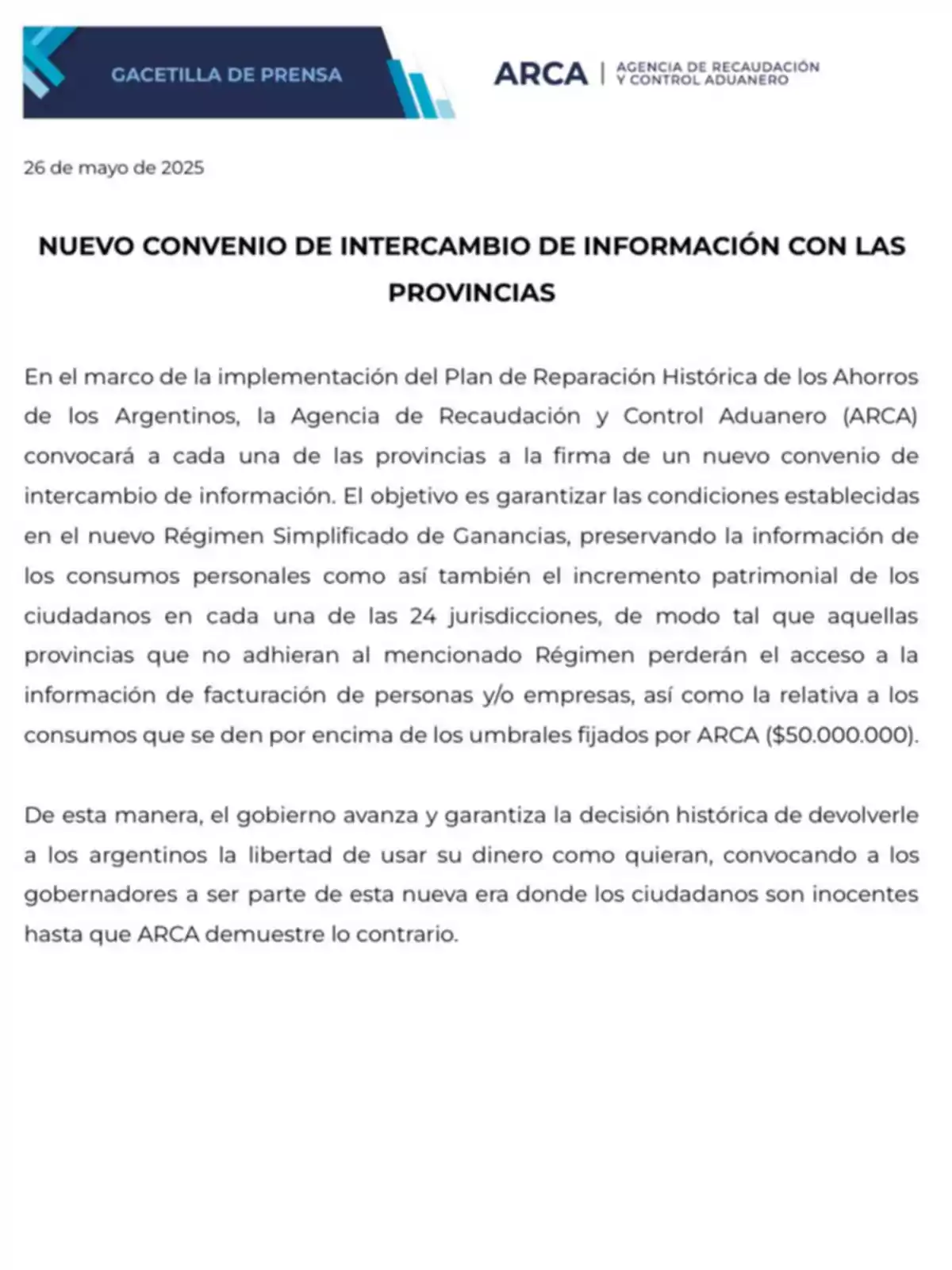
The government urged the provinces to join the Simplified Income Tax Regime
If Axel Kicillof doesn't align with the national government, he will lose access to key information for the PBA
In a new demonstration of commitment to tax transparency, the national government led by Javier Mileidemanded that the provinces adhere to the brand-new Simplified Income Tax Regime as an indispensable condition for accessing vital information about taxpayers. The warning is unequivocal: those who do not sign the new data exchange agreement with theRevenue and Customs Control Agency (ARCA) will lose access to key records, such as the invoicing of individuals and companies, and expenditures exceeding $50,000,000 annually.
This measure accompanies the launch of the Historical Savings Reparation Plan for Argentinians, an unprecedented initiative that seeks to return control over their resources to citizens and eliminate the tax harassment that characterized previous governments. "We are moving forward and guaranteeing the historic decision to return to Argentinians the freedom to use their money as they wish", the Casa Rosada officially stated, in line with the libertarian philosophy of reducing state interventionism.

The new regime, announced by the Secretary of Planning and Management for Productive Development and the Bioeconomy, Juan Pazo, entails a radical transformation in the settlement of income tax. The requirement for data on assets and personal expenditures is eliminated, focusing exclusively on invoiced income and deductible expenses. "We are not going to require any more information about expenditures or assets. Personal expenditures will no longer go through ARCA", Pazo stated during the presentation.
Starting in June, taxpayers will be able to opt for this system, which will apply to the 2025 fiscal period. It will end in mid-2026, when each user will be able to access their profile on the ARCA website, verify the amount determined by the system, and decide whether to accept it, pay it, or modify it according to their own records.
However, the implementation of this new fiscal logic requires coordination with provincial jurisdictions. For this reason, the national government called on governors to sign a new agreement that guarantees the integrity of the system. The decision becomes a test of governance and modernization: whoever doesn't sign will be left without access to the data that allows for proper oversight.

Meanwhile, provinces such as Santa Fe actively supported the measure, even highlighting its usefulness in the fight against drug trafficking and money laundering, while the province of Buenos Aires—governed by Axel Kicillof—chose confrontation. Cristian Girard, executive director of ARBA, denounced the new regime as a "covert amnesty" and refused to adhere. "It is presented as a reparation for savers, but in reality it is a mechanism for legalizing undeclared fund flows. It doesn't target accumulated savings, but rather allows undeclared funds not to accumulate while waiting for a new amnesty", he declared.
The Buenos Aires administration stated that it will continue to oversee taxpayers using current methods, ignoring the national warning about the cutoff in access to information. In addition, it maintained that provincial tax obligations will remain in force and that there will be no changes in oversight regimes.
Kicillof's position not only isolates the country's most populous province from a more efficient tax regime that respects individual freedoms, but could also leave it without tools to detect tax inconsistencies, thus weakening its management capacity in a delicate economic context.
More posts: